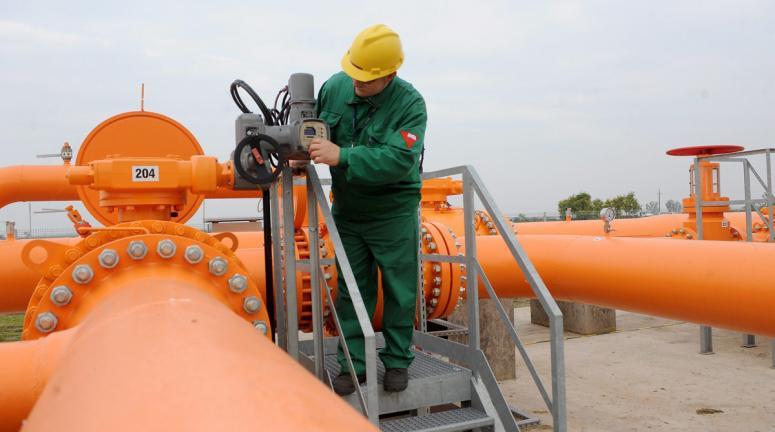
CROATIA COULD HAVE

Croatia's Adriatic coast is best known for its beautiful mountain scenery, clear blue sea and dozens of charming Venetian-influenced towns and cities. But the former Yugoslav country's government hopes it will become equally well known for what may lie beneath those pristine waters – billions of dollars' worth of oil and gas.
Last month, Croatia launched its first-ever offshore hydrocarbon licensing round for 29 blocks totalling 36,823 sq km. It hopes the tender – open for seven months – will draw in $2.5bn in investment over five years, reduce the country's dependence on imported oil and gas, lift the sluggish economy – and help build strategically-located Croatia as a regional energy centre.
"Croatia can become the energy hub in the region," Barbara Doric, president of the Croatian Hydrocarbon Agency, tells beyondbrics. "Though petroleum exploration has a long tradition in Croatia, this is the very first Croatian offshore licensing round. Croatia has a proven hydrocarbon province [offshore] which was largely underexplored historically."
The blocks range from 1,020 sq km to 1,635 sq km and are distributed around the Adriatic, with the north considered most promising for gas and the south for crude oil. Exploration concessions will run for five years, extendible by another year, and production licences for 25 years. Currently, all offshore exploration and production activities in Croatia are undertaken by Ina, the ailing part-state-owned oil company, which is the subject of a long-running dispute between the Zagreb government and Hungary's Mol, another major Ina shareholder.
Last year, the UK Sunday Times reported that a survey by Norwegian seismic-imaging company Spectrum had estimated that Croatia could have offshore reserves of up to 3bn barrels of crude oil, which would give it the second biggest reserves in the EU. Doric, however, is more cautious:
"It is hard to say before actual drilling is done," she says. "Actually what Spectrum was saying is that there is high prospectivity of the geological data and they have identified multiple potential leads which may yield hydrocarbons once further seismic [studies], drilling and appraisal have taken place."
Croatia currently has proven reserves of 70m barrels of crude oil and 880bn cubic feet (bcf) of natural gas, according to the US Energy Information Administration. But it is a net importer of both, to the tune of 73,400 barrels per day and 47 bcf respectively in 2012, with almost all gas imports coming from Russia.
Croatia's potential reserves could prove significant both for the country and a wider region that is belatedly coming to terms with the importance of energy diversification in the wake of the Ukraine crisis. The situation has raised concerns about over-dependence on Russia and undermined the case for Gazprom's South Stream gas pipeline, which would supply central Europe, Italy and the Balkans without passing through Ukraine. Croatia's position at the centre of the countries that South Stream would supply is hard to overlook.
"This is potentially very positive for Croatia and probably the region," Jim Thomas, vice president for regulatory consulting at IHS, which helped Croatia draw up the tender process, tells beyondbrics. "This is a very underexplored area that has the potential to have a significant supply of gas for Europe and other markets. Exploration has gone on on the Italian side of the maritime boundary, where there are far more producing facilities. The odds are looking very promising – there were more than 40 oil companies at the conference to launch the tender, and there is real interest from majors and supermajors."
He adds that the terms of the tender are attractive, particularly when compared with those of Mediterranean competitors.
Doric says the regulatory and fiscal regime has been overhauled over the past year, with Croatia's first hydrocarbons law passed, and her own agency established to oversee the sector. This framework, plus transparency, decades of oil industry experience, infrastructure and Croatia's EU membership, all make the tender an attractive prospect, she argues. Two years ago, Croatia completed offshore-to-onshore pipelines that mean that it no longer needs to import its own gas through Italy, lowering costs appreciably.
Promising as the geological fundamentals are, as Doric and Thomas say, these are early days. Even with long lead times taken into account, there is no guarantee that there are the substantial commercially exploitable reserves that would make a significant impact on the regional energy market. For example, South Stream would deliver around 30 times Croatia's 2012 gas output, without actually increasing Europe's supply in volume terms.
Concerns have also been raised about the damage that oil and gas exploration could do to Croatia's tourism sector, which generated more than €7bn in revenues last year. Doric insists that "one of the basic tender requirements was adherence to the highest environmental standards" and that block boundaries are located at least 10km from the mainland and 6km from islands. She points out that none of Croatia's existing drilling spots or platforms have affected tourism.
It would only take one spill to blight that record. But for Croatia, which is expected to endure a sixth consecutive year without meaningful economic growth in 2014, this may seem a risk worth taking.
ft.com




